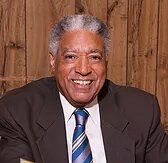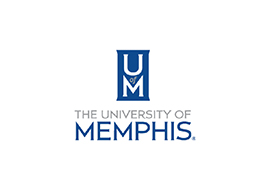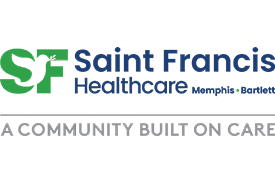West Cancer Foundation
Board of Directors

Art Gilliam
Chairman and President, Gilliam Communications
WLOK was around long before Art Gilliam ended up purchasing the radio station, and it was around long before Downtown Memphis underwent its transformation into a destination hotspot. But the headquarters are still there at 363 South Second Street, right next to the signpost designating it as a Tennessee Historic Landmark.
But if Gilliam’s path to radio was set in stone, it didn’t look like it from the beginning. “When I attended Yale University,” says Gilliam, “I majored in economics. At that point, I saw myself as heading into the insurance business, as my dad had worked at Universal Life Insurance Company.”
At the time, there was a lot of interest in having more black representatives in the media landscape, so Gilliam became the first black anchor at WMC-TV Channel 5 news while simultaneously writing a regular column for The Commercial Appeal. When Harold Ford Sr. was elected congressman for the area, Gilliam accompanied him to Washington as an administrative assistant.
His time in the capital cultivated his interest in media, so when an opportunity for ownership of a media company appeared, Gilliam jumped on it in 1977, making WLOK the first black-owned and locally owned station in Memphis. It was mainly an R&B station, although it had an early morning (3 a.m.-6 a.m.) slot for gospel. As radio evolved and FM became more prominent, the station started experimenting with other styles of music before settling on gospel. While that’s the station’s main musical focus, it continues to evolve as Gilliam pushes for more variety in its programming. “We really regard ourselves, even though we’re in a gospel format, as a community station,” says Gilliam. “A lot of people, when they hear gospel, think it’s just church music, but we do a lot more than that.”
As the media landscape changed over the years, Gilliam sought to incorporate different programming on the air, such as Let’s Talk About It. The talk program dives into various community issues, such as family safety and healthcare, and invites professionals in relevant fields on to the show. WLOK several years ago introduced its Black Film Festival, which highlights movies that are directed by black filmmakers, have black actors in leading roles, and contain social significance to the black experience in America. But perhaps the most long-running event that the station is known for is the Stone Soul Picnic, which recently celebrated a 45th iteration headlined by the Bar-Kays.
You’ll see many awards as you walk around the building and step into Gilliam’s office. Many of them honor his and the station’s work towards Memphis, civil rights, or other good causes. It’s not just talk, either. Gilliam recounts one time the station butted heads with advertisers when he first took over. “When we first bought the station, Operation PUSH, as it was called at the time, was considered a militant organization in the South. I knew they weren’t militant, but were just advocating for civil rights. The previous owners had been told that if they didn’t take PUSH off the air, advertisers would pull their business from the station. The first thing we did was put them back on the air, even though we didn’t really know whether the advertisers would boycott us or not.” The slot that Gilliam originally opened for PUSH remains to this day, known as Rainbow Push, and airs every Sunday at 6 p.m.
The more you explore the WLOK offices, the more Memphis’ respect for Gilliam is clear. Several portraits of the station president are throughout the office, but none were commissioned or requested by him. Each piece, done in varying artistic styles, was donated by local artists as a tribute to his work. Beyond the portraits, there are posters for the film festival and historic posters of some of the inaugural Stone Soul Picnics.
Other pieces of black history are prominently displayed around the office as well. A photographer named Kenyetta took several pictures of South Carolina slave cabins about to be torn down. Wanting the pictures to be seen, he asked Gilliam and WLOK if they could be displayed at the office. Now, they’re framed on the wall of the boardroom.
For Gilliam, the preferred outlet was always going to be radio. “ I always liked radio because it’s so personal. In fact, it’s so close to its audience that you’ll often hear a person state, ‘hey, that’s my radio station’ or ‘that’s my favorite radio station’. Well you don’t often hear people lay claim to a TV station. TV is done in various blocks of programs as opposed to the same format throughout. Radio, on the other hand, has more personalities, and radio is closer in many ways to the community than other forms of media. I had offers to go back into television once I returned from Washington, but I was already set on radio.”












